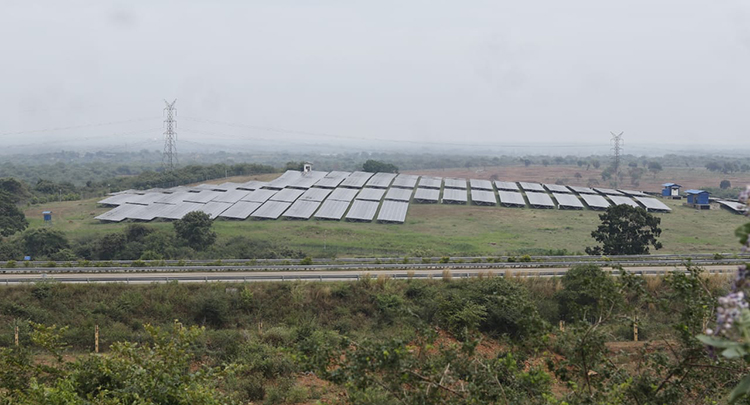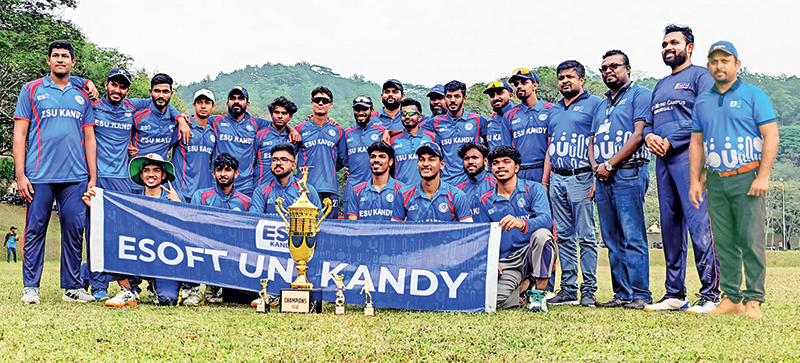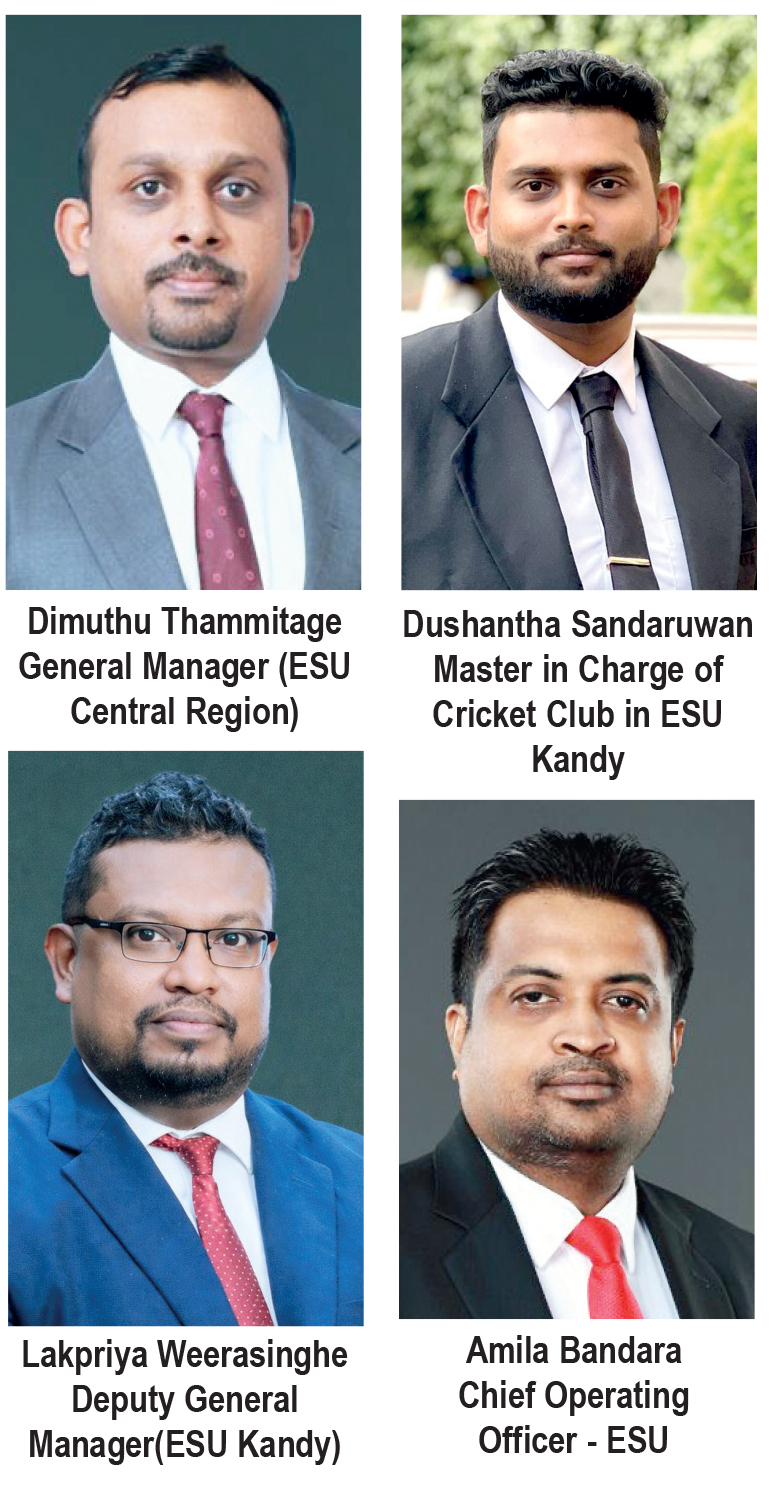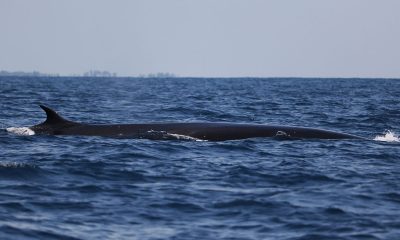Business
Standard operating procedure for local assembly of vehicles and component manufacturing to be launched

The Ministry of Industries spearheaded by . Wimal Weerawansa is soon to launch the standard operating procedure (SOP) for local assembly of vehicles and automotive component manufacturing to encourage world renowned brands to locally assemble vehicles.
Dimantha Jayawardena, president of the Sri Lanka Automotive Component Manufacturers’ Association said that the new SOP has been prepared in keeping with the highest standards around the world. “This SOP has been prepared by the Policy Development Division of the Ministry of Industries in close collaboration with Ministry of Finance, Sri Lanka Customs, Registrar of Motor Vehicles, Sri Lanka Automobile assemblers and Automobile Component Manufacturers. With the launch of the SOP it will become mandatory that vehicle assembly comply to the SOP and increase value addition for locally manufactured vehicles.
The SOP includes guidelines and standards for registration at the Department of Motor Traffic, BOI, Sri Lanka Customs and the Ministry of Industries and for the local assembly of vehicles.
 It has also specified the necessary regulations for standardization of the assembling and manufacturing process, the automobiles and components, and the establishment of the assessment facilities. It also has guidelines for the exportation of assembled and manufactured vehicles and the recommended exemptions of excise duties.
It has also specified the necessary regulations for standardization of the assembling and manufacturing process, the automobiles and components, and the establishment of the assessment facilities. It also has guidelines for the exportation of assembled and manufactured vehicles and the recommended exemptions of excise duties.
Jayawardena also said, “The SOP clearly states that it is vital that the sector should be provided with the opportunity to expand itself in the domestic market at the first stage and in order to achieve this objective, there should be a substantial level of investment in the domestically value-added automobile manufacturing/assembly industry, which could create the demand for locally manufactured components increasing their quality and to achieve internationally renowned standards.
“This SOP includes all regulations, procedures and requirements related to different aspects of the industry, from the registration of an industry to the safety and quality standards applicable to the same and is subject to review and revision every five years. Prospective local assemblers should be given the flexibility during the first two years to invest and start operations and adhere to the SOP guidelines within a 2-year time-frame.”
We expect more than 20,000 direct jobs and 25,000 indirect jobs to be created within the next 2 – 3 years. Currently SLACMA is working with the Ministry of Skills and Development together with NAITA and German Tech to absorb these students to the local assemblies.
The advantage of local manufacturing of automobiles allow technology transformation and technical training under some of the world’s best manufacturing standards such as Just In Time, 5S, KAISEN, LEAN Manufacturing, IATF 16949 and Six SIGMA standards. This will help our students to apply these manufacturing methods in other manufacturing industries.
“I must commend His Excellency the President for his vision of adding value to Sri Lankan products and services and in the process greatly enhancing the skill level of the local workforce.” He added.
Business
Lanka’s largest solar park set to transform energy landscape and local economy in Hambantota

A new era in Sri Lanka’s renewable energy is unfolding in the Gonnoruwa Division of Hambantota District, where construction has begun on the country’s largest solar power park. Spanning 450 acres and designed to generate 150 megawatts (MW) of electricity, the US$150 million private-sector-led project is poised to become a cornerstone of the nation’s sustainable energy ambitions.
Officials say the solar park, guided by the Sustainable Energy Authority and the Mahaweli Authority, will make its first contribution to the national grid by the end of this year, with full capacity expected by 2026. Once completed, the facility will rank among Sri Lanka’s largest renewable energy installations, second only to the 210 MW Victoria Dam and the 150 MW Upper Kotmale hydropower project.
The initiative is being framed as a strategic response to recurring power cuts in the Southern Province during annual drought periods. With a projected 20% contribution to the country’s daytime electricity demand, the solar park is expected to significantly stabilize the grid, reduce reliance on fossil fuels, and contribute to the country’s renewable energy targets.
Project Engineer Thilanka Bandara confirmed that preliminary land preparation and boundary works have been completed, with 50 MW already feeding into the national grid. The investment, fully funded through foreign direct investment, local bank loans, and equity capital, requires no government funding. Two private firms are sharing the development, contributing 70 MW and 80 MW respectively.
Bandara highlighted a unique feature of the project: the transmission infrastructure, estimated at US$16 million, is entirely financed by the investors, marking a departure from conventional grid-connected projects. The park will also employ state-of-the-art ground-mounted solar technology, considered the most advanced currently deployed in Sri Lanka.
In a first for Sri Lanka, the solar panels will be installed five feet above the ground, allowing partial-shade crops to be cultivated underneath. Technical Officer Sithmina Bandara explained that this setup will enable the cultivation of food plants such as mushrooms, which thrive in shaded conditions, creating a model for integrated solar-agriculture systems. Agricultural experts have already provided guidance on implementing this initiative, which combines energy production with local food security.
The project is expected to generate 750 to 1,000 direct and indirect jobs, with 400–500 already employed in the initial phase. Long-term maintenance work will provide further employment opportunities, offering a substantial economic boost to the Hambantota region. Environmental management measures are also in place to prevent elephants from entering nearby villages, ensuring harmony between development and wildlife.
All necessary approvals and permits were obtained by February 2025, aligning the project with the Ceylon Electricity Board’s national generation plan. Officials confirmed that upon completion, the total output of the Solar Energy Park will rise to 200 MW, combining existing installations with the new 150 MW facility.
Experts say the Hambantota solar park represents more than just a power generation project. Its innovative design, private-sector financing, and integrated agricultural approach position it as a template for future renewable energy projects in Sri Lanka, reflecting a new model of sustainable development that balances energy, economy, and environment.
By Sirimanta Ratnasekera
Business
ESU Kandy clinches dominant victory at ‘Battle of Esoftians’

The Battle of Esoftians, an annual cricket encounter organized by ESOFT Uni Kandy, concluded with a spectacular display of cricketing prowess as the Kandy team secured a massive 245-run victory over ESOFT Metro Campus, Kurunegala. The match was held on the 15th at the University of Peradeniya Grounds.
Winning the toss and electing to bat first, the ESOFT Uni Kandy batsmen dominated the field from the outset. They showcased an explosive batting performance, posting a formidable total of 280 runs for the loss of 5 wickets in their allotted 20 overs.
In response, the Kurunegala ESOFT Metro team struggled against a disciplined bowling attack. The Kandy bowlers dismantled the opposition’s batting lineup, bowling them all out for a mere 35 runs, sealing a historic win for the Kandy campus.
The event was graced by the presence of key officials from the ESOFT management: Amila Bandara – Chief Operating Officer (ESOFT Uni), Dimuthu Thammitage – General Manager (Central Region), Lakpriya Weerasinghe – Deputy General Manager, ?Lahiru Diyalagoda
Centre Manager-Degree Division, ESOFT Metro Campus Kurunegala and Dushantha Sandaruwan – Master in Charge (ESU Kandy Cricket Club)
Team Lineups
ESOFT Uni Kandy (Winners)
Chamath Ekanayake (Captain), Dinuka Tennakoon (Vice Captain), Dushantha Sandaruwan (MIC), Chalitha Rathnayake, Pulasthi Bandara, Isuru Dehigama, Kesara Nuragoda, Aadhil Sherif, Isuru Pannala, Achintha Medawatta, Ahamed Shukri, Gowtham Hari Dharshan, Danushka Sahan, Eranda Bandara, and Damith Dissanayake.
ESOFT Metro Campus Kurunegala (Runners-up)
Adeesha Samarasekara, Savishan Madusha, Lahiru Diyalagoda, Hirun Damayantha, Naveen Madushanka, Daham Pothuwewa, Senuda Thewnaka, M.R. Abdulla, Arunodya Dasun, Mohamad Afri, Desith Perera, Lasitha Ranawaka, Anton Dilon, Shenuka Thirantha, and Kavindu Bandara.
Text and Pix By S.K. Samaranayake
Business
HNB joins Royal–Thomian “Battle of the Blues” as official banking partner

HNB PLC, Sri Lanka’s leading private sector bank, has joined as the Official Banking Partner for the 147th edition of the historic “Battle of the Blues,” the Royal–Thomian cricket encounter between Royal College, Colombo, and S. Thomas’ College, Mt. Lavinia. Commenting on the partnership, HNB’s Managing Director/CEO Damith Pallewatte highlighted the bank’s long-standing connection with cricket, including sponsorship of Sri Lanka’s first Test match against England in 1982, and emphasized HNB’s commitment to nurturing young talent and promoting school cricket. The three-day clash for the Rt. Hon. D. S. Senanayake Memorial Shield will take place from March 12–14 at the SSC Grounds, with the Mustangs Trophy one-day match following on March 28 under lights. HNB’s inaugural involvement marks a milestone in the bank’s sports marketing journey, strengthening its role in the school cricket ecosystem. The bank will enhance the spectator experience by introducing digital and cashless banking solutions, modernizing the event while preserving its rich heritage and sporting tradition.
-

 Business6 days ago
Business6 days agoMinistry of Brands to launch Sri Lanka’s first off-price retail destination
-

 News7 days ago
News7 days agoThailand to recruit 10,000 Lankans under new labour pact
-

 Latest News1 day ago
Latest News1 day agoNew Zealand meet familiar opponents Pakistan at spin-friendly Premadasa
-

 Latest News1 day ago
Latest News1 day agoTariffs ruling is major blow to Trump’s second-term agenda
-

 Latest News1 day ago
Latest News1 day agoECB push back at Pakistan ‘shadow-ban’ reports ahead of Hundred auction
-

 News7 days ago
News7 days agoMassive Sangha confab to address alleged injustices against monks
-

 Features6 days ago
Features6 days agoGiants in our backyard: Why Sri Lanka’s Blue Whales matter to the world
-

 Sports3 days ago
Sports3 days agoOld and new at the SSC, just like Pakistan














